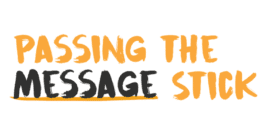Community services struggle in Covid’s shadow

21 December 2021 at 7:30 am
Just 6 per cent of charities say they have been able to meet all demand for services in 2021
As 2021 comes to a weary close, new research has revealed that charity staff are not only burnt-out and struggling to keep up with increasing demand, they are seeing a rising wave of more complex problems, disadvantage and poverty among the communities they serve.
The report, released by the Australian Council of Social Services (ACOSS) on Tuesday, highlights the immense pressure the sector is under, two years on from the beginning of the pandemic.
Based on findings from the Australian Community Sector Survey, the report revealed that just 6 per cent of the nearly 2,000 people surveyed were always able to meet service demand. This is down from 19 per cent at the end of 2020.
Nearly 60 per cent of respondents reported an increase in the number of clients their service was unable to support, 73 per cent said there were increased levels of poverty and disadvantage in the communities they support, and 81 per cent reported growing complexity of need among service users.
Housing affordability and homelessness, social isolation, a lack of mental health support and the cost of living were some of the main challenges people faced, with demand for housing and homelessness spiking throughout the year.
ACOSS acting CEO Edwina MacDonald said not only were demand for services rising, but people’s needs were becoming more complex and harder to meet, which is a big challenge for service providers.
“This shows the deep and sustained toll the pandemic has had on those living on low incomes across the country,” MacDonald said.
While the introduction of extra government financial support during 2020 meant that the lives of people on low incomes actually improved, this was not the case in 2021.
“With the emergence of the Delta variant and the withdrawal of income supplements, we saw people everywhere struggling to survive and needing to access more essential services to cope,” MacDonald said.
“Community organisations showed tremendous resilience and creativity to continue to deliver services to people experiencing poverty and disadvantage despite prolonged lockdowns, strict public health measures and short-term, uncertain funding arrangements.”
Charities running without support
On top of this, a quarter of participants reported decreased availability of funding to support their work, with just one in eight charity leaders saying that in 2021 there was enough funding to meet demand.
One survey respondent said that the significant contribution of the community sector during disasters needed to be backed up with adequate funding.
“The community sector has played a phenomenal role in supporting the community during bushfires, the COVID pandemic and now in supporting vaccinations. This is often done without adequate funding or resourcing, and with little fanfare or attention,” the respondent said.
“The community, policy and the sector would benefit greatly if government recognised this significant contribution, funded it, and worked collaboratively with the sector in tackling some of our most challenging issues.”
Jana Favero, the advocacy manager at the Asylum Seeker Resource Centre (ASRC) said that there had been many learnings throughout the past couple of years, but one thing that would help was rapid response grants that gave charities the flexibility to spend money quickly in unpredictable environments.
“It might be that we need $100,000 this month for housing and then that might be some material aid. Next month it might be for vaccine education that’s culturally appropriate,” Favero told Pro Bono News.\
“So I think real increased funding for charities and flexibility in the way charities can spend that money with less red tape just to be able to survive will be critical.”
Charity staff left with only a little in the tank
As organisations have tried to manage increased and complex demand, ensuring the wellbeing of staff has been difficult and at times, completely pushed aside.
Favero described 2021 as a “triple whammy year”.
“Staff are exhausted, people’s resilience has been worn down because of long and constant lockdowns, and then on top of that, we have increased demand and little or no government support,” she said.
She said that from an operational perspective, the constantly changing rules and regulations meant staff were kept on their toes at all times.
“We had a number of COVID cases in our building, so that meant having to shut services,” she said.
“We constantly had to be rethinking how we were doing things… guided by what was best for people seeking asylum or refugees, but also for our staff and volunteers.”
She said that constantly battling against government legislation such as proposed changes to the political campaigners bill and proposed crackdowns on charitable advocacy were an added and unwelcome stress.
“We’re trying to deliver services to people seeking asylum that couldn’t access safety nets with staff that are exhausted and burnt out, and at the same time, we are having to fight an attack on the ability for charities to advocate,” she said.
Hope for the future
While the arrival of the Omicron variant on Australian shores has thrown a spanner in the works of the country’s COVID-19 recovery, the report said there was still time to correct the course, but it depended on a more “collaborative and dependable” partnership between the community sector and government.
Favero echoed this sentiment, saying charities needed to feel supported as they entered a third, unpredictable year.
“I would invite Anne Ruston, Josh Frydenberg and Scott Morrison to just come and visit charities on the ground and see what’s actually happening,” she said.
“Because it’s unrealistic to keep expecting charities to operate in this way.”
Read a full copy of the report.







